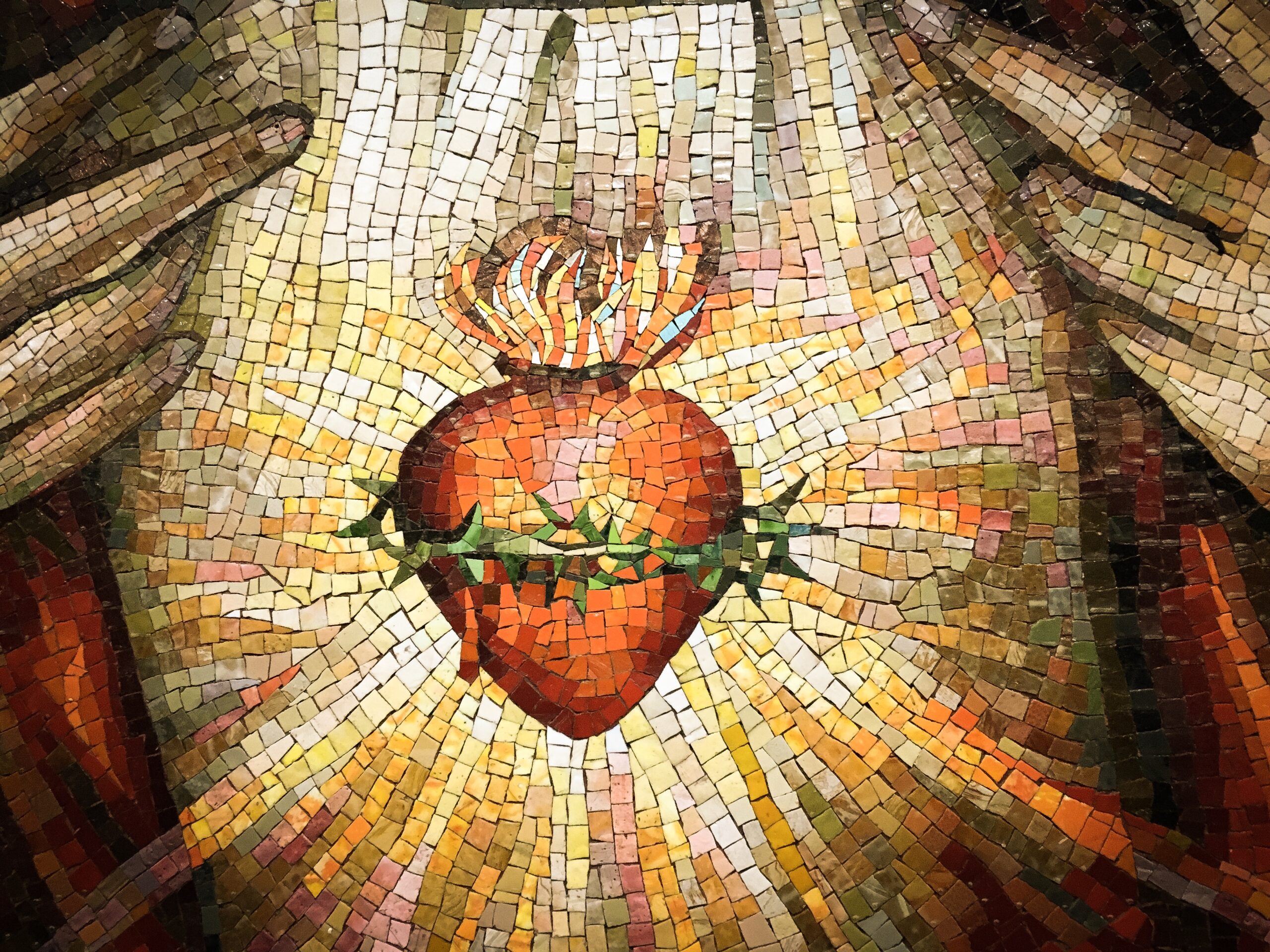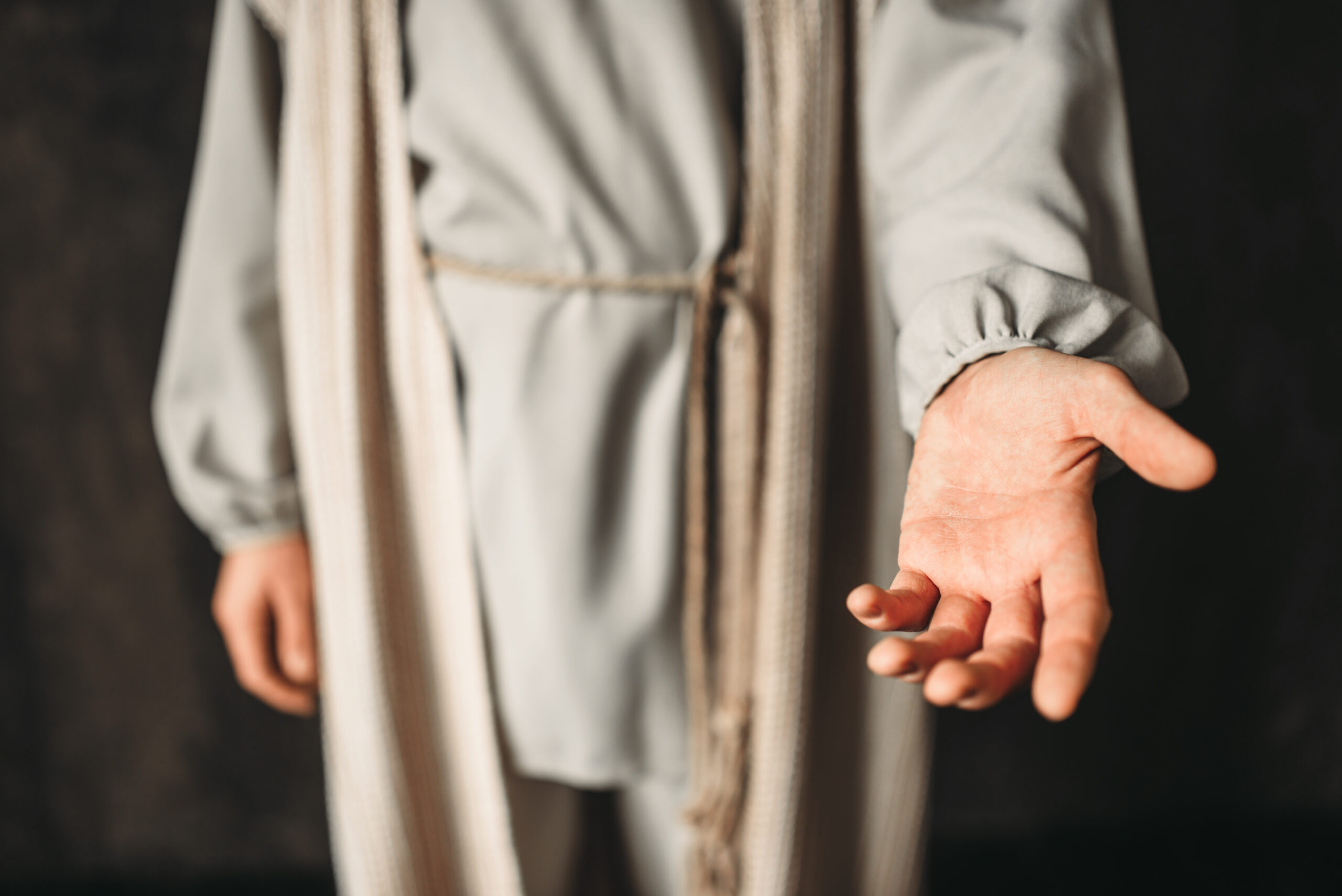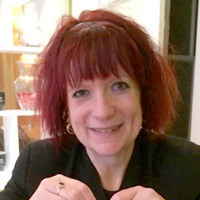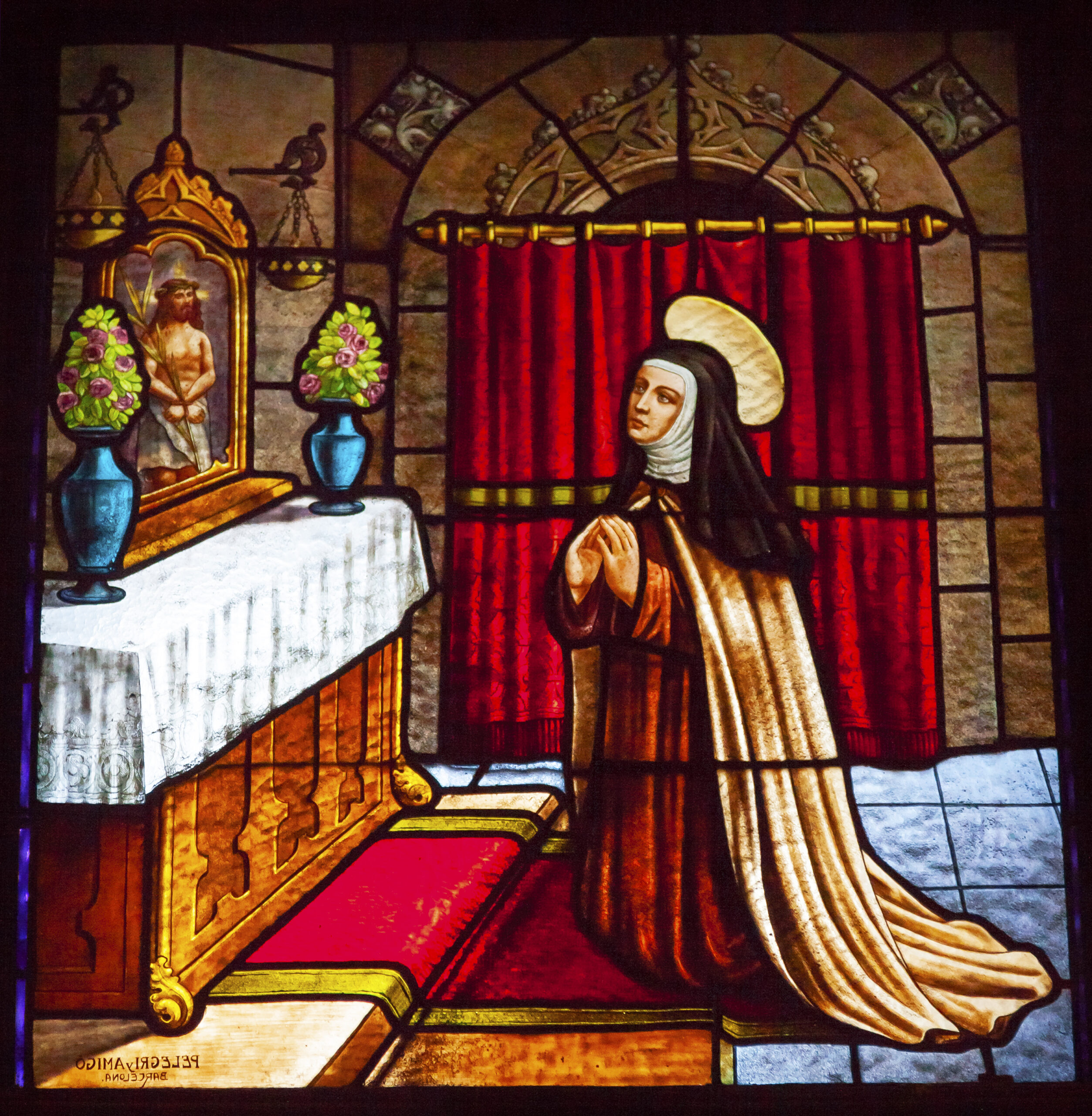As we continue to hear of the difficult questions posed to Jesus, we come to the Great Commandment: “You shall love the Lord, your God, with all your heart, with all your soul, and with all your mind” (Matt 22:37). The second, also essential, follows close behind: “you shall love your neighbor as yourself” (Matt 22:39). We ought to honor God in the public square, attending Mass, defending core teachings of the Faith, and avoiding the idols of our time. In addition, we ought to care for the poor and needy, offering our time, talent, and treasure to be present to the disadvantaged. Often, we focus more on one or the other of these commandments. After all, worship and charity seem to be quite different. This focus is good to the extent that we truly put the Great Commandment, love of God, first. Even so, it is easy to miss the unifying connection between these two commandments: charity.
The Catechism, in paragraph 1822, refers to charity as the virtue “by which we love God above all things for his own sake, and our neighbor as ourselves for the love of God.” Both commandments, touching God and neighbor, are encompassed by this virtue. Just as the Great Commandment takes primacy in Jesus’ response, so does love of God take primacy in the virtue of charity. Even love of neighbor, while seemingly centered on our brothers and sisters, is ultimately done for love of God. When we love God with all our heart, soul, and mind, we love all people for his sake, recognizing that the Lord wants his creation to flourish.
Our readings give us a sort of blueprint for this understanding of charity. Our reading from Exodus gives us a foundation: charity cannot exist in us without justice. Justice, at its core, means giving the other person what is due to him. If we wrong the widow, the orphan, the poor, or our neighbor, we cannot possibly move forward in acting out of love for them. We must treat all people as they deserve, created in God’s image and likeness. This is the minimum, asked of the Hebrews immediately upon being freed from Egyptian slavery. Still drawn to idolatry, they were expected to be just.
Once we learn to be just, as even the pagans were, we turn our thoughts to God. The Psalmist expresses this beautifully, proclaiming God as his strength, rock, fortress, and deliverer. “The LORD lives and blessed be my rock! Extolled be God my savior” (Ps 18:47). We proclaim in reply, “I love you, Lord, my strength.” All charity, as seen in the Catechism, begins with love of God. As Love himself, the Lord is the perfect object of our love. He gives us all that we need and even more, equipping us for a life of joy. Throughout our trials and triumphs, he is present. Beyond what he gives us, God is always worthy to be praised and loved, perfect and wonderful as he is. God is to be loved with all of our strength. This is why love of God is the Great Commandment.
Saint Paul shows us the flowering of charity in our second reading. Having practiced justice and the love of God, we can perfect our love of neighbor. The Thessalonians impress Paul precisely in showing this charity: not only did they hear the words of the Lord and implement them, but they spread them far and wide. They cared so deeply for their brothers and sisters that they could not bear to see them deprived of the grace of God. They strove to bring all to Christ, both to fulfill God’s will and to serve their neighbor. Their evangelization was an act of love for neighbor, but it was done out of love for God. This unity of the commandments is exactly what charity calls for. We practice justice, love God in himself, and love God in our neighbor, all at the same time.
Often, we hear gospel passages such as this one and remain at the surface. It is fairly easy to imagine what Jesus means when he tells us to love God and to love our neighbor. However, when we read in context and look for the depth of God’s Word, we can see the riches of a life of charity, lived in union with God and in communion with our neighbors.
 David Dashiell is the Associate Director of Liturgy for a group of parishes in Pittsburgh, Pennsylvania. When he is not spending time with his wife and infant daughter, he is writing on philosophy and theology for various online publications. You can find some of these in Crisis Magazine and the Imaginative Conservative, and you can contact him at ddashiellwork@gmail.com.
David Dashiell is the Associate Director of Liturgy for a group of parishes in Pittsburgh, Pennsylvania. When he is not spending time with his wife and infant daughter, he is writing on philosophy and theology for various online publications. You can find some of these in Crisis Magazine and the Imaginative Conservative, and you can contact him at ddashiellwork@gmail.com.


 Shannon Whitmore currently lives in northwestern Virginia with her husband, Andrew, and their two children, John and Felicity. When she is not caring for her children, Shannon enjoys writing for her blog, Love in the Little Things, reading fiction, and freelance writing. She has experience serving in the areas of youth ministry, religious education, sacramental preparation, and marriage enrichment.
Shannon Whitmore currently lives in northwestern Virginia with her husband, Andrew, and their two children, John and Felicity. When she is not caring for her children, Shannon enjoys writing for her blog, Love in the Little Things, reading fiction, and freelance writing. She has experience serving in the areas of youth ministry, religious education, sacramental preparation, and marriage enrichment.
 Kathryn Mulderink, MA, is married to Robert, Station Manager for Holy Family Radio. Together they have seven children (including newly ordained Father Rob and seminarian Luke ;-), and two grandchildren. She is a Secular Discalced Carmelite and has published five books and many articles. Over the last 25 years, she has worked as a teacher, headmistress, catechist, Pastoral Associate, and DRE. Currently, she serves the Church as a writer and voice talent for Catholic Radio, by publishing and speaking, and by collaborating with the diocesan Office of Catechesis, various parishes, and other ministries to lead others to encounter Christ and engage their faith. Her website is
Kathryn Mulderink, MA, is married to Robert, Station Manager for Holy Family Radio. Together they have seven children (including newly ordained Father Rob and seminarian Luke ;-), and two grandchildren. She is a Secular Discalced Carmelite and has published five books and many articles. Over the last 25 years, she has worked as a teacher, headmistress, catechist, Pastoral Associate, and DRE. Currently, she serves the Church as a writer and voice talent for Catholic Radio, by publishing and speaking, and by collaborating with the diocesan Office of Catechesis, various parishes, and other ministries to lead others to encounter Christ and engage their faith. Her website is 
 Patrick produces YouTube content for young Catholics on
Patrick produces YouTube content for young Catholics on 
 Deacon Dan Schneider is a retired general manager of industrial distributors. He and his wife Vicki recently celebrated their 50th wedding anniversary. They are the parents of eight children and twenty-nine grandchildren. He has a degree in Family Life Education from Spring Arbor University. He was ordained a Permanent Deacon in 2002. He has a passion for working with engaged and married couples and his main ministry has been preparing couples for marriage.
Deacon Dan Schneider is a retired general manager of industrial distributors. He and his wife Vicki recently celebrated their 50th wedding anniversary. They are the parents of eight children and twenty-nine grandchildren. He has a degree in Family Life Education from Spring Arbor University. He was ordained a Permanent Deacon in 2002. He has a passion for working with engaged and married couples and his main ministry has been preparing couples for marriage.
 Kathryn James Hermes, FSP, is the author of the newly released title
Kathryn James Hermes, FSP, is the author of the newly released title
 Emily Jaminet is a Catholic author, speaker, radio personality, wife, and mother of seven children. She earned a bachelor’s degree in mental health and human services from the Franciscan University of Steubenville. She is the co-founder of
Emily Jaminet is a Catholic author, speaker, radio personality, wife, and mother of seven children. She earned a bachelor’s degree in mental health and human services from the Franciscan University of Steubenville. She is the co-founder of 
 Tami Urcia grew up in Western Michigan, a middle child in a large Catholic family. She spent early young adulthood as a missionary in Mexico, studying theology and philosophy, then worked and traveled extensively before finishing her Bachelor’s Degree in Western Kentucky. She loves tackling home improvement projects, finding fun ways to keep her four boys occupied, quiet conversation with the hubby and finding unique ways to love. She works at Diocesan, is a guest blogger on
Tami Urcia grew up in Western Michigan, a middle child in a large Catholic family. She spent early young adulthood as a missionary in Mexico, studying theology and philosophy, then worked and traveled extensively before finishing her Bachelor’s Degree in Western Kentucky. She loves tackling home improvement projects, finding fun ways to keep her four boys occupied, quiet conversation with the hubby and finding unique ways to love. She works at Diocesan, is a guest blogger on 

 Jeannette de Beauvoir is a writer and editor with the digital department of Pauline Books & Media, working on projects as disparate as newsletters, book clubs, ebooks, and retreats that support the apostolate of the Daughters of St. Paul at
Jeannette de Beauvoir is a writer and editor with the digital department of Pauline Books & Media, working on projects as disparate as newsletters, book clubs, ebooks, and retreats that support the apostolate of the Daughters of St. Paul at 

 Merridith Frediani’s perfect day includes prayer, writing, unrushed morning coffee, reading, tending to dahlias, and playing Sheepshead with her husband and three kids. She loves finding God in the silly and ordinary. She writes for Ascension Press, Catholic Mom, and her local Catholic Herald in Milwaukee. Her first book Draw Close to Jesus: A Woman’s Guide to Eucharistic Adoration is expected to be released summer 2021. You can reach her at
Merridith Frediani’s perfect day includes prayer, writing, unrushed morning coffee, reading, tending to dahlias, and playing Sheepshead with her husband and three kids. She loves finding God in the silly and ordinary. She writes for Ascension Press, Catholic Mom, and her local Catholic Herald in Milwaukee. Her first book Draw Close to Jesus: A Woman’s Guide to Eucharistic Adoration is expected to be released summer 2021. You can reach her at 